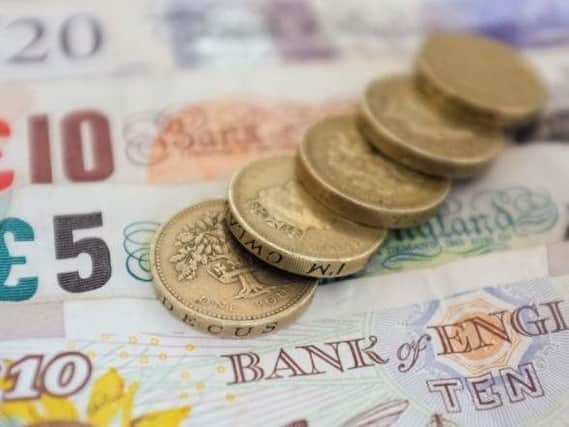Universal Credit roll out continues


Universal Credit is designed to help with basic living costs such as childcare and housing costs and replaces a range of benefits such as Child Tax Credit; Income based Jobseeker’s Allowance and Working Tax Credit.
With Universal Credit designed to ensure that those who receive it will be better off when in work, it will also provide the support required to encourage those recipients to prepare for work, commence work and earn more money. There is no restriction on the number of hours a Universal Credit recipient can work each week and the benefit will gradually reduce as the recipient earns more money as opposed to being removed suddenly.
Advertisement
Hide AdAdvertisement
Hide AdUFU Rural Affairs Committee would encourage those recipients of Universal Credit who are currently out of work to actively seek employment as their earnings will increase.
With the roll out of Universal Credit continuing, the UFU Rural Affairs Committee is encouraging any affected members who have not yet made the transition to the new process to visit www.nidirect.gov.uk/articles/universal-credit and use the postcode checker function to receive an exact date of when Universal Credit will be available in their area.
The Universal Credit roll out is due to be completed in September 2018 meaning that Universal Credit will be available right across Northern Ireland in the Autumn and when available in their area any benefits recipients will need to claim Universal Credit.
In order to ensure the process of transition to Universal Credit is smooth and hassle free the UFU Rural Affairs Committee would encourage any members who are currently in receipt of benefits to prepare for the introduction of Universal Credit.
Advertisement
Hide AdAdvertisement
Hide AdTaking simple steps such as opening a bank account, setting up an e-mail address, familiarising themselves with use of the internet, checking the cost of essential bills such as rent if applicable, and ensuring they have the correct documents to verify their identity such as a Passport, Driving Licence and Utility bill will help to make the transition process less cumbersome.
Universal Credit is paid to each household twice a month; however a monthly payment is available. The amount of Universal Credit a recipient will receive depends on the recipient’s individual circumstances including the value of their income and the number of children they care for if any. Any new recipients of Universal Credit will receive their first payment approximately six weeks after submitting their first claim.
In order to avail of Universal Credit, claimants must submit their income figures online each month and Universal Credit is subject to a ‘Minimum Income Floor’ which is an assumed level of earnings that the government will use to calculate the financial award each claimant is entitled to provided their earnings are below that level each month. This Income Floor is set at 35 hours per a week at a rate equivalent to the National Minimum and Living Wage.
The UFU Rural Affairs Committee would urge any members who require further help or assistance with any aspect of Universal Credit to contact Rural Support, Advice NI or their local Jobs and Benefits Office.